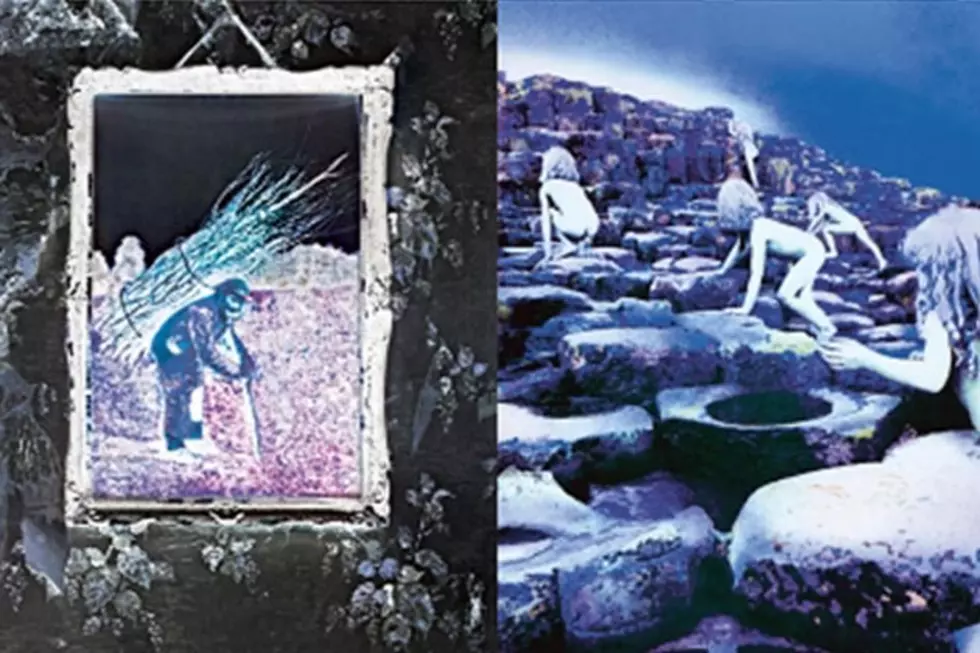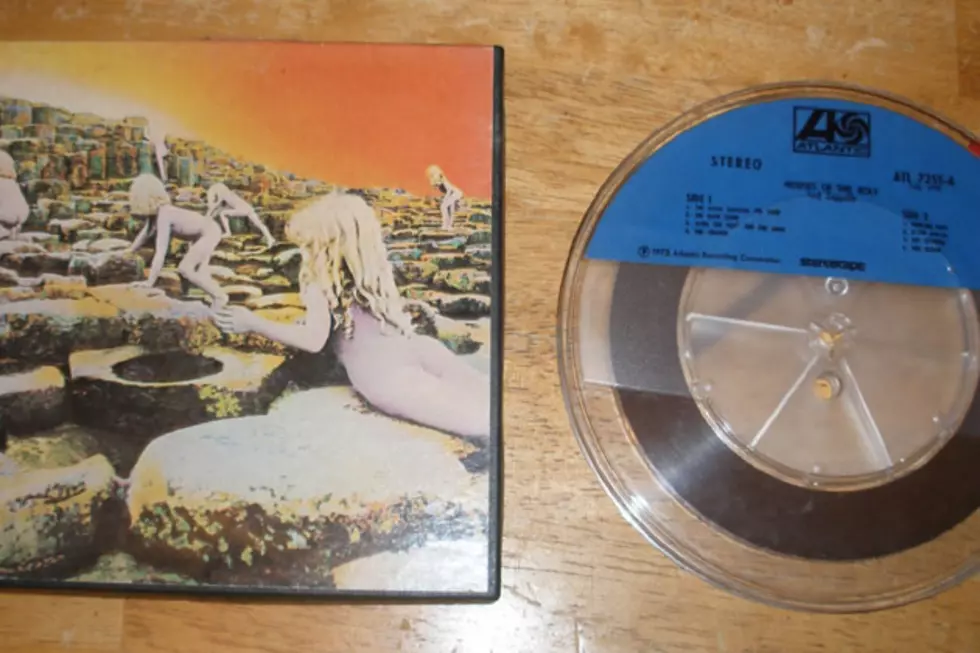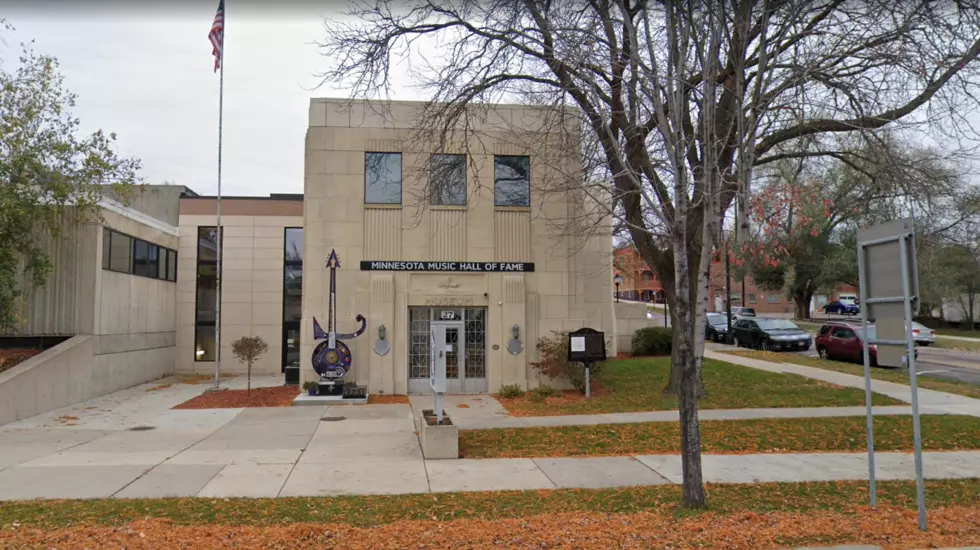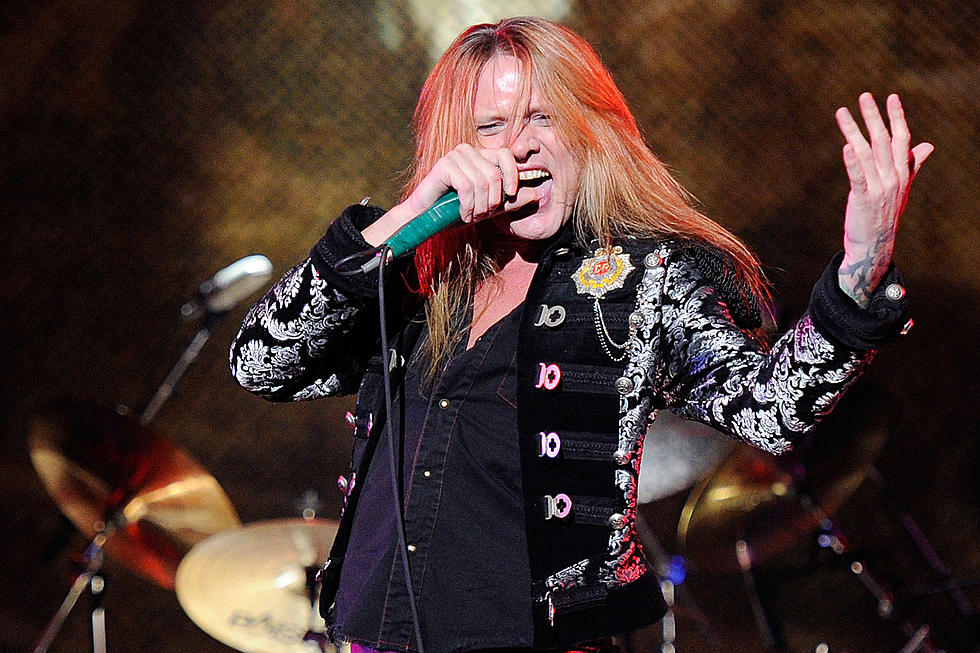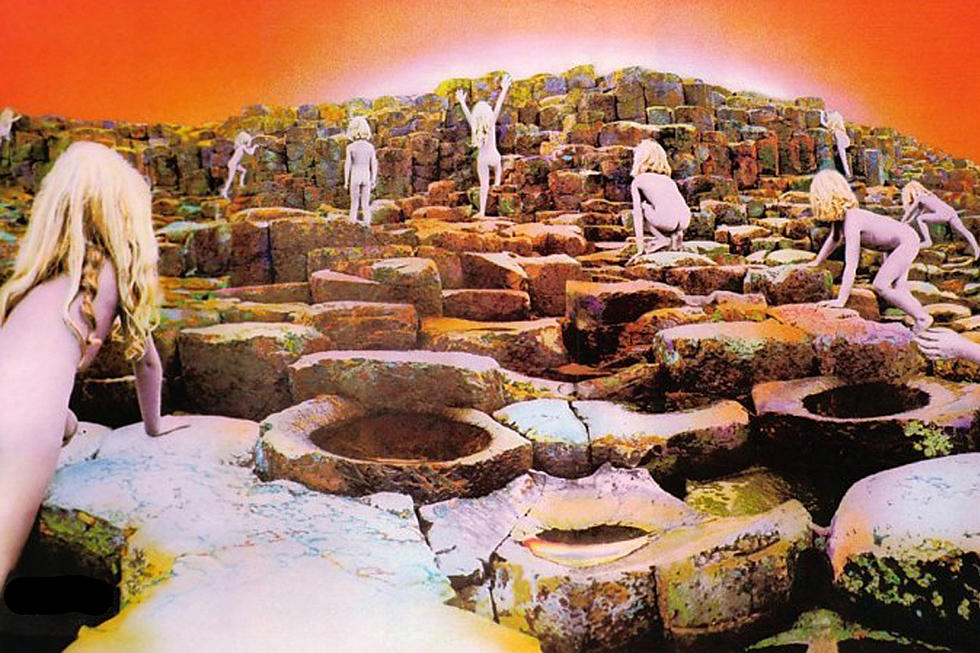
Led Zeppelin’s ‘Houses of the Holy': Our Writers Answer Five Heavy Questions
To celebrate the 45th anniversary of Houses of the Holy, we took six of our writers to the top of a mountain and asked them five questions about Led Zeppelin's classic album. Here are their responses.
Complete this sentence ‘Houses of the Holy' is Led Zeppelin’s most ______ album”
Michael Gallucci: "Unfocused" -- at least as far as the classic LPs go. Don't get me wrong, there are many great songs here, but unlike its four predecessors, Houses of the Holy sounds more like a grab bag of riffs than a master plan.
Nick DeRiso: “Diverse.” Does this kind of complexity make Houses of the Holy a great album? Not if you were looking for more of the sludgy, sometimes blandly derivative booze-rock found on Led Zeppelin's initial efforts. Instead, a band that started out blatantly ripping off Howlin’ Wolf, Willie Dixon and Sonny Boy Williamson II had brilliantly synthesized those early influences into something new, maturing along the way into one of rock’s most deeply involving – and completely fearless – voices.
Matthew Wilkening: "Scattered." This album is more all over the place than Ebby Calvin "Nuke" LaLoosh in bed. That's not a bad thing at all -- most of those genre explorations are very rewarding -- but it does put the album a notch below a couple of the band's more cohesive efforts.
Dave Swanson: "Holy." It was very exciting when it first came out. They were sort of really exploding at that time. The fourth album became pretty huge, and this was just a blast of energy and excitement. I bought it when it first came out and loved it very much. It still holds a special place in all things Led Zeppelin to me. They are at their most rocking, ethereal, funky and poppy -- all on the same album -- and are all playing at the top of their game throughout.
Eduardo Rivadavia: "Prototypical and uncontroversial." Think about it. It's unassailable because, with the arguable exception of IV, no other Zep LP showcases Jimmy Page and co.'s almost-infinite musical abilities, all their greatest strengths, so completely, with virtually no excess fat, which is the only knock usually levied upon the magnificent Physical Graffiti. And it's uncontroversial because Page finally wrote an album with no obvious songs that he possibly appropriated from other sources. All the classic albums before it held some level of controversy where song credits were concerned -- e.g. "Dazed and Confused" on the first LP, "Whole Lotta Love" on II, "Since I've Been Loving You" on III and "Stairway to Heaven" on the fourth.
Martin Kielty: “Daring.” It represents a moment when, pushing against the momentum that might have had them going in the same direction forever, they refocused and created a new momentum. It splits the band’s recording career into two distinct movements, and although it’s more part of the second than the first, its limbo location makes it one of their bravest works. In some circles it’s sacrilege to say that not everything they did was brilliant, but Houses demonstrates why their “hit-or-miss” exploration was important.
Why do you think 'Houses' gets less attention than other classic Zeppelin albums?
Gallucci: The album doesn't have that one defining song most of the other albums have. Plus, it's sandwiched between two of their best records. There's a lot to live up to.
DeRiso: It's too experimental. At the peak of their powers, Led Zeppelin went off script. The results here are very much like the White Album, in the sense that they try on every different hat in their wardrobe. As with that earlier Beatles project, some will come away feeling like Houses of the Holy is nothing more than an unfocused pastiche, others a fizzy moment of discovery. I’m definitely in the latter category.
Wilkening: Because it had Led Zeppelin IV on one side of it and Physical Graffiti on the other. Pretty hard to stand out in that group photo. Also, Houses' best songs are longer and more experimental and therefore not as suited for radio saturation as "Rock and Roll" and "Black Dog." ("Stairway to Heaven" is, of course, its own unique case study.)
Swanson: I have no idea. For me it ranks very high in their catalog. It doesn't carry the weight of legend that the fourth album does, and, in retrospect, is almost a breather of sorts between that and the sprawling Physical Graffiti, but it's rock-solid from start to end. The singles, "D'yer Mak'er" and "Over the Hills and Far Away" were big favorites right off. As I would listen intently to the entire album, song by song it kept unfolding as something special. The loud stomp of "The Ocean" to the heaviness of "No Quarter," it had a lot of variety.
Rivadavia: Because Zeppelin spoiled their fans rotten between 1969 and 1975. By the time Houses came along, fans had grown accustomed to perfection and were often guilty of taking the band's genius for granted. Ironically, even Led Zeppelin III probably gets discussed more than Houses for being less universally loved than everything around it.
Kielty: Could it be as simple as that it wasn’t called Led Zeppelin V? Could it be that people were turned off by the new direction? I suspect it’s more to do with people having followed one of the most indulgent bands in the world for four albums and just needed a comedown from the ride. That would explain why it later gained most (if not all) of the respect it deserved.
What’s the best song?
Gallucci: I'm going to go with "The Rain Song." Led Zeppelin recorded plenty of epics and plenty of love songs in their time. This is probably their most epic love song.
DeRiso: For me, “The Rain Song" is a tour de force moment for a band emerging back then as the Beatles of heavy music. (They even seem to reference George Harrison’s “Something” in the early going. Or is that just me?) Certainly, this album shows how they embraced a similar brand of eclecticism and this track, as much as any other, encapsulated their newfound prowess across an ever-widening musical landscape. “The Rain Song” made it clear that there was nothing Led Zeppelin couldn’t do.
Wilkening: "Over the Hills and Far Away" by just a hair over the also-magnificent "The Rain Song." It covers so much ground in so little time, without ever feeling like a lab experiment. But if it's 2:30AM on a weekend, the answer changes to "No Quarter."
Swanson: Hmmm ... While the definition of the word "best" may be up for debate, I would say my favorite is a toss up between "The Song Remains the Same," rocking full throttle, or the haunting, slightly psychedelic monster that is "No Quarter."
Rivadavia: Are you kidding? I can't choose less than three. "Over the Hills and Far Away" basically covers every element of the definitive Zeppelin sound in less than five minutes. "The Rain Song" ranks with their most beautiful and emotional songs, and no Robert Plant performance would be this vulnerable and tender until "All My Love." And "No Quarter" is an absolute mood-monster, given an incomparable, unmistakably haunting sound by John Paul Jones' Mellotron behind those sinister lyrics.
Kielty: “The Song Remains the Same” has got a little bit of everything, and in having that, best sums up what they were trying to achieve with Houses. It’s sort of shorthand for the whole work.
If you had to cut one song off, which would it be?
Gallucci: "The Crunge." It's not a song, it's a three-minute riff lacking any sort of direction or center. A voice at the end of the song asks, "Where's that confounded bridge?" Where's the point? I ask.
DeRiso: With so many experiments, left turns and goofs, this is actually one of the harder things to nail down. The James Brown thing? The reggae bit? Problem is, I like all of these imaginatively offbeat moments. Even “The Ocean,” which has the immediate feel of classic Zeppelin, includes a final wackadoo moment when the music completely drops out for something that sounds like, what? Doo-wop? “Sure is fine,” Plant adds when the song cranks back up again. “Blows my mind.” Well, yeah.
Wilkening: Is this where I cop to frequently skipping "The Song Remains the Same?" All the parts are cool, but it seems like a patchwork and too proggy for them. Plus, sometimes Plant sounds like he's rushing to fit in all his words.
Swanson: "The Crunge." Although it's cool and unique, it still seems kind of out of place to me. Led-Zeppelin-does-Stevie-Wonder, sort of. It's cool, but it's also my least favorite on the album. Might just be that confounded bridge that keeps getting in the way.
Rivadavia: Easy -- "The Crunge," which makes me cringe every time it interrupts Houses of the Holy's majestic flow with its rough and raggedy Brits-as-James-Brown funk. Mind you, it's still an awesome song, would be a highlight on Presence or In Through the Out Door, but it's the clearly the weak link here.
Kielty: Actually, it’s easy – “The Crunge.” To me it doesn’t sit well with the other songs, and while it has a certain value, it’s even more of a straight rip-off of funk than its B-side, “D’yer Mak’er,” is of reggae. Any of the other tracks they’d recorded but saved for future albums would have sat better.
Is this the best Led Zeppelin cover art? If not, what is?
Gallucci: Possibly -- all of Zeppelin's covers are essential parts of their respective albums. The Houses art is endlessly fascinating. The colors, the imagery, the way I can't figure out just what the hell is going on here. Still, I think it's better suited for Pink Floyd than Zeppelin.
DeRiso: I’m going with 1976’s Presence, which features a retro-‘50s family gathered around a classic Hipgnosis non sequitur: This black object. The impetus for the object, even now, is unknown to me. (A reference to 2001: A Space Odyssey, maybe?) Whatever this thing was, Jimmy Page came away thrilled. Presented with an early mock up, he said, "That is it. That represents everything that I feel right now."
Wilkening: Yes. Someday I will have an orange van with this as a mural on one, if not both, sides.
Swanson: It's intriguing, bizarre and unique for sure, especially upon grabbing it out of the record bin in 1973! What the hell was this?! Albums covers were their own universe sometimes, especially back then. It made an impact before putting the record on. I remember it came with a paper band, like a band on a cigar, that slid over the album and it had the band's name and album title on it, because, obviously, there are no words as part of the actual cover art. I wouldn't say it's their best cover art though. I would give that to either the first album or Physical Graffiti.
Rivadavia: Tough question. It's probably their most visually appealing and its obviously the most uniquely colorful in a discography characterized by uniformly drab color palettes. However, both Led Zeppelin I's and Physical Graffiti's are more iconic, pound for pound, and IV's takes the cake among classic rock's most downright mystifying and nonsensical album art, and that's a tall order to compete with. Suffice to say, Houses of the Holy's art also rules at the end of the day.
Kielty: It’s up there, but I can never decide between Led Zeppelin for the monolithic scale of the dramatic image, and Led Zeppelin IV for its evocative power (I do indeed “savor it,” the way Plant wanted us to).
Why Led Zeppelin Won’t Reunite Again
Led Zeppelin Albums Ranked
More From KYBB-FM / B102.7


